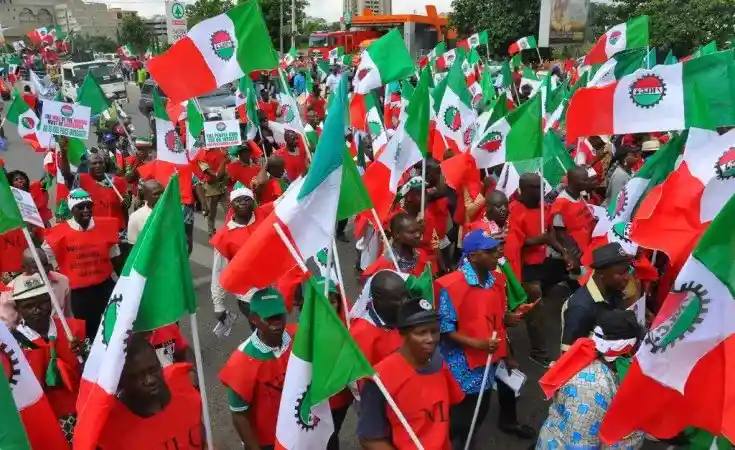Advertisements
ABUJA, Nigeria — Organized Labour in Nigeria has firmly rejected a proposed new minimum wage of N100,000, asserting that such an amount is insufficient to meet the basic needs of workers and their families. This stance was reiterated by the Nigeria Labour Congress (NLC) and the Trade Union Congress (TUC), the principal bodies representing the nation’s labor force.
Negotiations for revising the national minimum wage have been ongoing between Organized Labour and the government. Tensions escalated last Wednesday when labour unions walked out of a negotiation meeting after the government suggested a new minimum wage of N48,000.
Labour Unions Reject FG’s Proposed N48,000 Minimum Wage
This prompted Alhaji Bukar Goni, chairman of the Tripartite Committee on the National Minimum Wage, to invite labour back to the table, signaling the government’s readiness to reconsider its position and urging the unions to do the same.
Advertisements
Labour’s Stance on Minimum Wage
Benson Upah, the NLC Head of Information and Public Affairs, emphasized the need for the government to engage in negotiations with seriousness and realism. Upah highlighted that the NLC’s demand for a N615,000 minimum wage is based on meticulous calculations that reflect basic living costs. These calculations include modest estimates for accommodation at N40,000 and food expenses of N500 per meal for a family of six.
“The government hiked electricity tariffs by 250% after we made our demand, which has further increased living costs,” Upah told *Vanguard*.
Advertisements
Government’s Proposal Criticized
Prof. Theophilus Ndubuaku, a member of the NLC delegation, criticized the government’s proposed N100,000 minimum wage, stating that it is grossly inadequate and fails to cover basic living expenses for a worker supporting a family of six. Ndubuaku noted that even artisans in the private sector earn more than N100,000 per month.
Ndubuaku also questioned the government’s spending priorities, criticizing large expenditures on non-essential projects and imported goods while neglecting essential needs like worker welfare. He called for the government to transparently justify any lower wage proposals by demonstrating financial constraints and outlining measures to create wealth and reduce governance costs.
“If the government argues it can’t afford N615,000, it should clearly demonstrate why, showing its revenue and spending priorities,” Ndubuaku stated. He stressed that any final agreement must consider the overall economic context and the necessity of improving the living standards of Nigerian workers.
Call for Realistic Negotiations
Upah’s remarks underscore the need for the government to acknowledge the rising cost of living, exacerbated by recent hikes in electricity tariffs, and to approach negotiations with a realistic understanding of workers’ financial needs. The labour unions remain resolute that any new minimum wage must reflect the true cost of living and ensure that workers can adequately provide for their families.
As negotiations continue, both parties are urged to consider the broader economic implications and strive for a resolution that will enhance the welfare of Nigerian workers without compromising the country’s economic stability.
Stay informed with Ejes Gist News – Your Source for Credible Naija News Today, latest naija gists today, and Breaking News in Nigeria Now.

